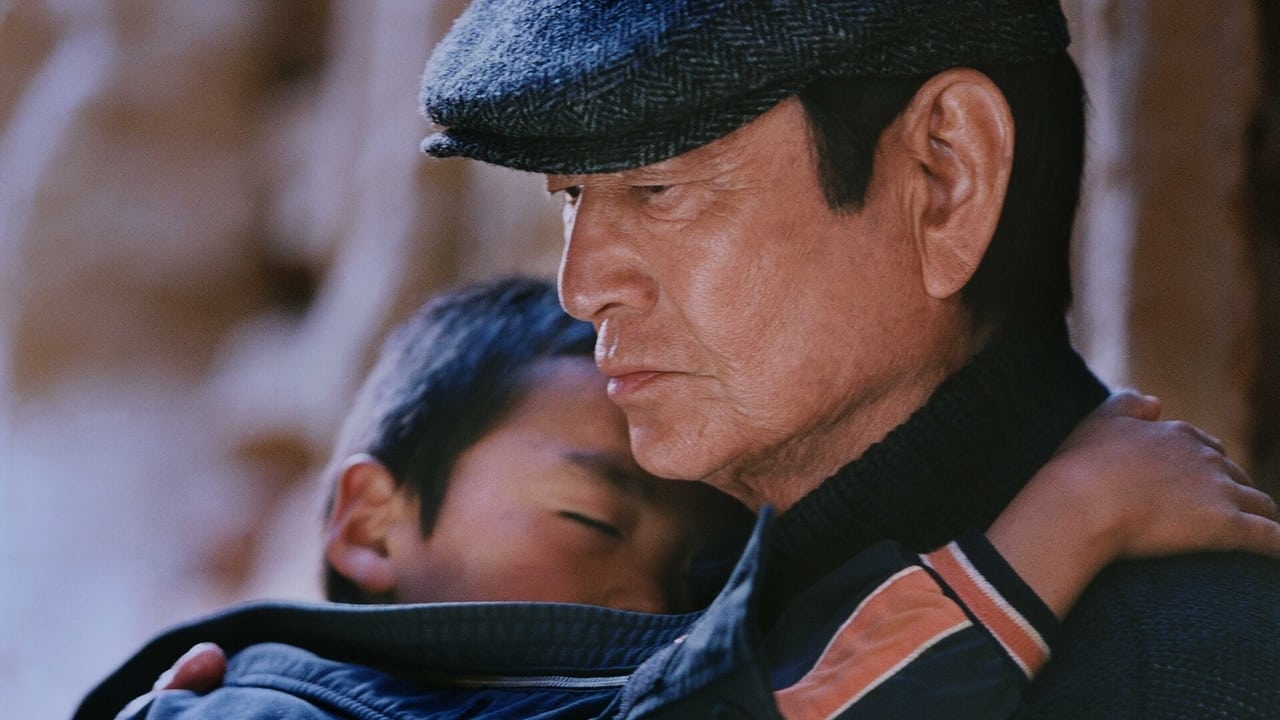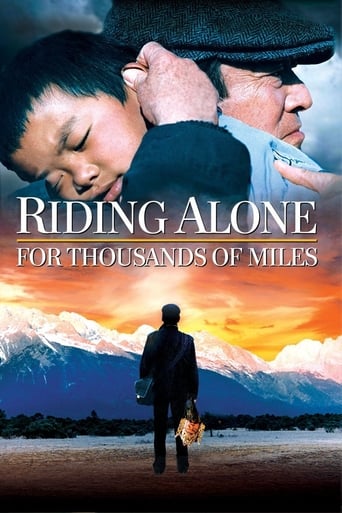Lucybespro
It is a performances centric movie
Edwin
The storyline feels a little thin and moth-eaten in parts but this sequel is plenty of fun.
Wyatt
There's no way I can possibly love it entirely but I just think its ridiculously bad, but enjoyable at the same time.
Phillipa
Strong acting helps the film overcome an uncertain premise and create characters that hold our attention absolutely.
WILLIAM FLANIGAN
Viewed on DVD. Subtitles/translations =ten (10) stars; production values = nine (9) stars; Action Director Yimou Zhang takes his hand off the throttle to deliver a change of pace drama with essentially two stars: a small Chinese boy and the spectacular scenery of (then) remote Southwestern China. He conjures up an interesting tale, but it is far from an audience magnet. The photo play probably looked better in Preproduction (script, storyboards, casting, etc.) than it does on screen. This may be due to prosaic, by-the-book editing; but it seems mostly the result of lethargic acting by professional actors/actresses (the rural-area non pros out perform the pros in the majority of scenes). Nicely captured and delineated by the Director are the different levels of behavior from business dictates to cultural conditioning to the real feelings of Japanese and Chinese as individuals (perhaps you have encountered these dichotomies in your travels). Cinematography (wide screen, color) and scene lighting are excellent. So is set design. Score is fine, but the surround sound field is not there yet. Subtitles/translations are a pure pleasure to behold. Not only are near simultaneous line readings in Japanese and Mandarin translated well, but the name of every film contributor listed in the opening and closing credits is translated into English from Japanese or Mandarin (even those with English-lettered names are translated into Mandarin!). Rarely (make that just about never for Japanese films) is credit given where it is due in movie translations. Well worth watching. WILLIAM FLANIGAN, PhD.
inigovik
Too much emotions and pain in a single person, a story that gives a lesson of life. Takata is extremely herd by his wife's death that he plunges into loneliness and no-contact with his son Kenichi who is dying of cancer at a hospital, refusing to see his father. A journey that helps Takata rediscover the value of family through the grace of Yang Yang, a kid whose father is imprisoned for an ironic act of defense. The movie is all about self analysis and forgiveness; Takata stops been emotionless after he was told about Kenichi's death, but specially after having experienced the cultural values of a foreign country. The narrative is the only fact I felt a bit ambiguous; however, the real language that must be spoken in this film is the language of feelings and expressions.
kandylova19
In this film, Zhang Yimou portrays the stark difference between Japanese and Chinese culture without succumbing to biased tendencies. Among the numerous cultural differences, perhaps the greatest visual distinction would be the colorful masses of China against the gray, solitude of Japan. The audience becomes aware of these contrasts as Takata, a Japanese father sets out on a journey to China in hopes of improving his estranged relationship with his son who is dying from liver cancer. Through his travels Takata comes to a greater understanding about life, himself, and his son's interest with the Chinese culture, especially the folk operas.
Valentino Manlutac
I never paid much attention to who directs the movie, so I was surprised that the director who made the movies "Hero" and "House of Flying Daggers" is the same director that made "Riding Alone for Thousands of Miles" Yimou Zhang did an excellent job making this film. He was able to show the audience Takata's struggles of being a foreigner and the frustration of not speaking China's native tongue. I think the film relates to everyone, Fathers and sons, Mothers and daughters. The film shows the relationship between family that became strangers and so often in life, tragedy usually what makes them come together. Takata's son became ill and was diagnose with cancer. I think Takata traveling to China to film Li singing was to get closure with his son. Even though the film shows that the son appreciated Takata's gesture, you kind of question if that is true, maybe the daughter in law was lying to him, in order for him to come home and see his son for the last time. I also think that the letter written by the son could also be a lie from the daughter in law and she was the one that wrote it. It's possible that she, herself was giving closure to both Father and son by telling Takata that his son forgave him and that he loves him. It was also the same when Takata didn't tell Li that his son died and that he doesn't have to sing the opera song. Some things are meant not to be said and lying is sometimes necessary.-- I truly enjoy this film, I think capturing true emotions on film is more difficult than making martial arts and Zhang was able to accomplish this in "Riding Alone for Thousands of Miles"

